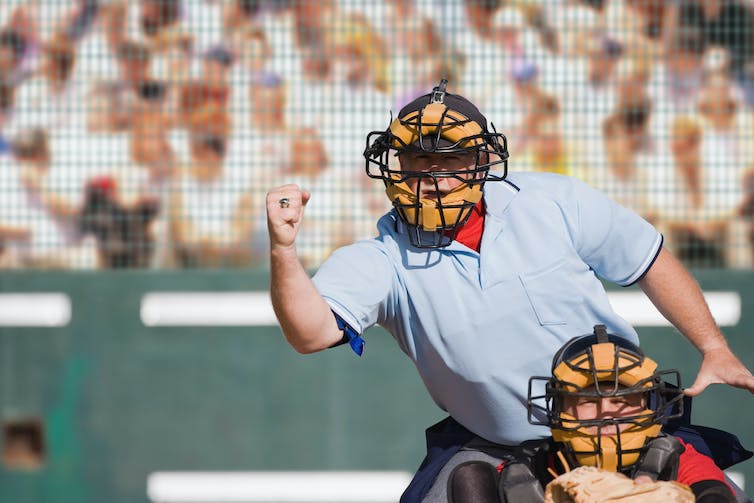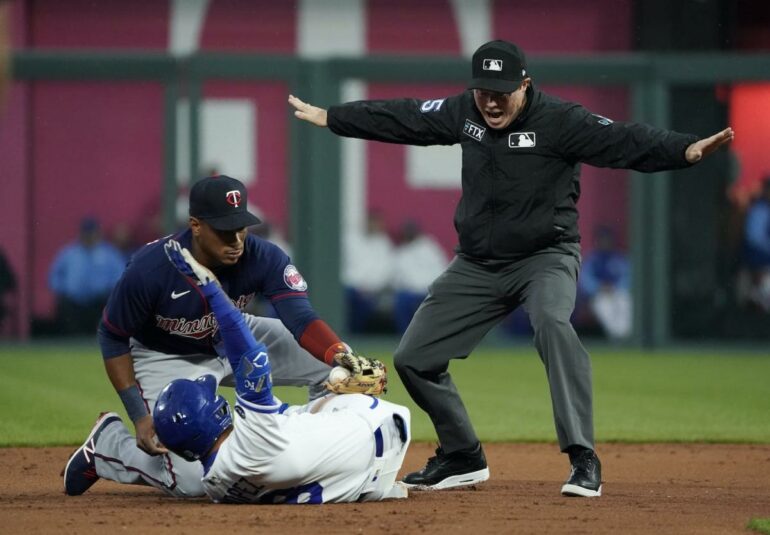Major League Baseball has been trying something new in recent seasons: instant replay for umpire calls. After replay review, some erroneous calls on the field can be overturned. Baseball in its own fashion is acknowledging what sports fans have always known – officials make mistakes.
The most notable manifestation of this tendency is the all-too-common bad call and its companion, the makeup call. When an umpire makes a bad call, the only way they could presumably restore balance to the game is to make an additional bad call, but this time in favor of the wronged team. For example, an umpire may incorrectly call a “strike” on a pitch that was clearly outside the strike zone, only to make up for the error later by calling a “ball” on a pitch that clearly caught the edge of the strike zone.
Instant replay isn’t perfect and isn’t used in every situation, which leaves room for umpires to make bad calls and subsequent makeup calls. Beyond sports, there are lots of other ambiguous situations in everyday life where people try to make up for errors in judgment with makeup calls meant to restore the balance.
We are organizational scientists who are interested in how makeup calls operate. With our colleagues, we explored this question in research recently published in the Journal of Applied Psychology.

What happens after an ump makes a bad call?
Score by Aflo/Getty Images Plus via Getty Images
Setting things right once mistakes are made
Examining MLB playoff data from 2008-2014, we found that bad calls increased the likelihood of makeup calls. That is, when an umpire made an objectively erroneous call, it increased the chances of subsequent calls in favor of the team that was harmed.
For instance, when bad calls were made against pitchers, umpires were then more likely to call strikes. We also found that umpires became less likely to call strikes on a batter if they’d made bad calls against the batter’s teammates.
But as the stakes increased – meaning the call had greater importance to the overall outcome of the game – makeup calls became less likely. Makeup calls seemed to be aimed at righting prior wrongs and correcting for some level of unfairness, but not so much that they would have an impact on which team actually won or lost.
Makeup calls in the psychology lab
To investigate whether this tendency toward the makeup call extends beyond Major League Baseball, we invited undergraduate volunteers into our lab. We paired them off and gave them a set of jars each containing random objects like bolts, screws and so on.
One student was the decision-maker and guessed if the number of objects in the jar was greater or less than 300. The second student was the judge and evaluated the other student’s decision based on their own estimation. The decision-maker received raffle tickets each time the judge sided with them, and judges received raffle tickets when they were correct in…



